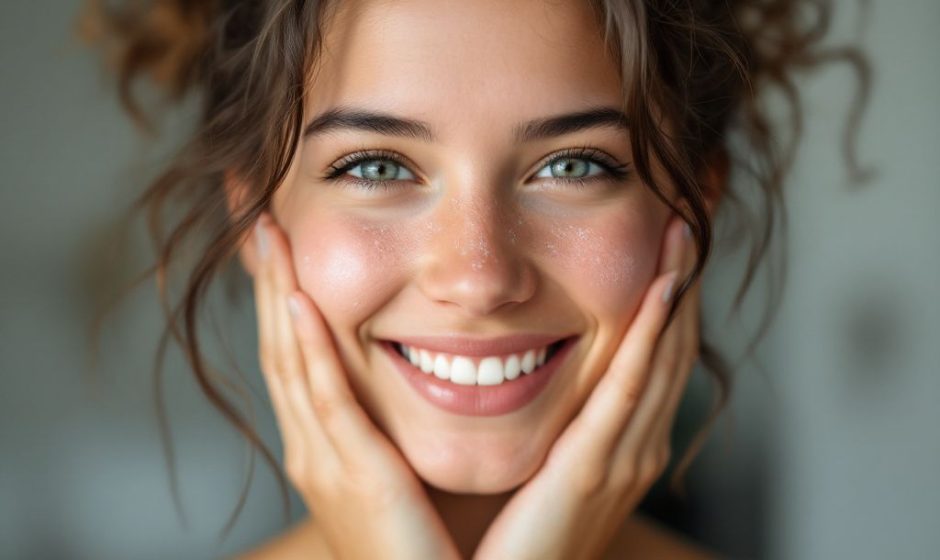Okay, so let’s talk about acne—yeah, that thing that seems to pop up right when your social calendar is loaded. Like, couldn’t it wait a week? But alas, puberty has its own schedule. You wake up in the morning hoping that maybe today is the day your skin gives you a break, only to find new friends sprouting on your forehead. Don’t stress, we’ve got simple puberty acne care.
So, what even is acne, and why do we have to deal with it, especially during puberty? When you hit those teenage years, your body is cranking out hormones like it’s getting paid overtime. And those hormones? They can send oil production into overdrive. More oil means clogged pores, and clogged pores mean acne. Fun, right?
But don’t stress; there are ways to totally manage this. Puberty acne care doesn’t have to be a fancy, 12-step ordeal. With simple adjustments and understanding your skin better, we can definitely tackle this thing. Ready? Let’s dive in.
Acne’s Many Faces
Before jumping into solutions, let’s do a little roll call for the types of acne you might meet. We’ve got blackheads, whiteheads, and bigger zits that could be painful cysts or nodules. Each kind requires slightly different care, but the root cause is usually the same – clogged pores.
Do blackheads and whiteheads bow to any cream-factory? Not always. But, they’re usually more manageable because they just chill on the surface. Cysts and nodules, though? They’re working undercover, deeper in your skin. So naturally, they take longer to heal. Remember, touch less and care more.

Basic Skin Survival Kit
So, what’s the secret recipe for basic puberty acne care? Spoiler: Less is more. Really. Overloading your face with products like it’s some kind of buffet is a common rookie mistake. Here’s a quick guideline to get started:
1. Gentle Cleansing
First off, ditch the bar soap. Yep, it’s not for your face. Choose a gentle, sulfate-free cleanser. Clean your face twice a day – morning and night. Obsessed with clear skin? Resist the urge to scrub like you’re washing dishes. Be kind to your skin.
2. Moisturize Like a Boss
Even if your skin feels oily, you need moisture. Oil isn’t hydration, and drying out your skin usually backfires. Look for a lightweight, non-comedogenic moisturizer. Think of it as a nice drink of water for your skin.
3. Spot Treatment – Your Skin’s BFF
Got a stubborn zit? Spot treatments with salicylic acid or benzoyl peroxide can be your go-to. Apply just a little to the affected area. It’s not magic, but over time, these help speed up healing.
4. Sun Protection
I won’t nag (too much), but daily sunscreen when heading outside is important to keep acne scars at bay. Opt for a daily SPF 30 at least. Even when it’s cloudy.

Let’s Bust Some Myths
Have you heard the one about chocolate causing acne? Or that stress is an acne demon? Yeah, myths are everywhere so let’s clear this up.
- Chocolate is Off the Hook
Have your chocolate, but moderation is key. The real culprit might be a diet high in sugar and dairy, which could affect insulin levels causing more breakouts. - Stress Isn’t Number One
Okay, stress does play a role, but it isn’t the lone wolf here. Combined with oil and dirt build-up, stressful a week can show up on your face, though. - If It Burns, It’s Working
Nope. Burnt or too-stingy means irritated. Listen to your skin, maybe try something milder.
Some Extras Worth Trying
Alright, keeping it simple is ideal, but a couple of additions might benefit your skin:
- Tea Tree Oil: Natural, mild, and effective against bacteria. Mix a few drops with your moisturizer.
- Aloe Vera: Use the gel directly from the plant for a soothing, calming ingredient against inflammation.
- Stay Hydrated: Obvious, yes, but really, water helps flush away toxins.
Lifestyle Tweaks – Not Big Changes
Get enough sleep, man. Lack of sleep can mess up your skin, yep, it shows when you skimp. Keeping your sleeping patterns regular can at least leave you with clearer skin and a rested look. Balance it with exercise, but sweat rules; clean your skin post-workout to avoid letting that grime sit and marinate.
Let’s talk about pillowcases. When’s the last time you changed yours? Dirt, oil, and all kinds of things build up pretty fast, especially if you sleep with all-night oil marinating on your face. Sort this mess by changing them every week.
Trickier? Avoid touching your face. I know, I know. It’s almost second nature. But you have everything and anything on your hands. Trust me, a big favor to your skin is keeping hands busy elsewhere.

The TMI of Facing the Mirror
While looking in the mirror too often might sound self-absorbed, it isn’t a crime during the acne battle—just try to avoid excessive poking and picking. Picking can lead to scars, maybe even infection. So all those finger marks are best left for phone screens, okay?
How about making a little diary of what you’ve tried?
It seems nerdy, but hear me out. Keep a note in your phone or notebook about things you’ve tried with dates. This can show what and when your skin loved or hated what treatments, helping avoid future mishaps.
Why Keep it Simple?
It’s easy to complicate things and fall into a consumerist trap. The simpler your routine, the more forgiving it’ll be on bad skin days, busy days when soap water seduces, or when school life takes over. After all, puberty and self-care shouldn’t be at odds.
Managing acne isn’t about eliminating every single blemish, but finding a balance while maintaining your skin’s health. You’ve got enough complainers at school; let’s cheer on your healthier, confidence-inducing skin routine with calm perseverance and simplicity. Hang in, because you sure got this!
FAQ
Q1: What causes acne during puberty?
A1: Acne during puberty is primarily caused by hormonal changes, particularly the increase in androgens (sex hormones) that stimulate oil glands to produce more sebum. This excess oil, combined with dead skin cells and bacteria, can block pores and lead to acne.
Q2: How can I prevent acne during puberty?
A2: To prevent acne, maintain a consistent skincare routine that includes washing your face twice a day with a gentle, non-comedogenic cleanser. Use products containing benzoyl peroxide or salicylic acid, and avoid picking or squeezing pimples. Keeping hair clean and avoiding oily products can also help.
Q3: What are the best treatments for teenage acne?
A3: Effective treatments for teenage acne include over-the-counter products containing benzoyl peroxide or salicylic acid. For more severe cases, consulting a dermatologist for prescription medications like antibiotics, retinoids, or steroid injections may be necessary. A consistent skincare routine and avoiding comedogenic products are also crucial.
Q4: How does stress affect acne during puberty?
A4: Stress can exacerbate acne by increasing the production of cortisol, a hormone that can lead to increased sebum production and clogged pores. Practicing stress-reducing techniques such as meditation and maintaining good mental health can help manage acne.




